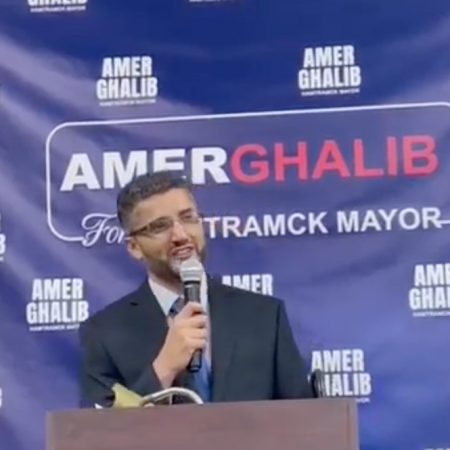Indo-Pak Ties Under Strain?
By Nilofar Suhrawardy, Muslim Media News Service (MMNS)
New Delhi—Tit-for-tat diplomacy being indulged in by India and Pakistan has once again raised question marks about the two nuclear neighbors, earlier known as permanent enemies, heading towards “normalization†of their ties. Even before the two have settled differences over charges of Pakistan’s alleged involvement in the recent Mumbai blasts (July 11), they have started expelling each other’s diplomats. Justifying expulsion of the Indian diplomat, Pakistani spokesperson Tasnim Aslam said in Islamabad (August 5): “We have evidence of his undesirable activities. He (Deepak Kaul) was indulging in activities that are incompatible with his diplomatic status.†Within hours, New Delhi retaliated by ordering the expulsion of senior Pakistani diplomat Syed Rafiq Ahmed.
With written permission from the Pakistan government for his travel, Kaul left Islamabad early Saturday to go to Amritsar by road to fetch his family. He was stopped 90 km from Lahore by Pakistani security agencies, hooded, handcuffed, and taken to an undisclosed location where he was interrogated for around five hours. Later, Kaul was handed over to the Indian High Commission and asked to leave Pakistan by August 7.
Describing behavior meted out to Kaul as “outrageous,†India the same day expelled Mr. Ahmed. In a press briefing, Indian external affairs ministry spokesman Navtej Sarna said that in New Delhi, Dilip Sinha, Joint Secretary in Ministry of External Affairs, summoned Afrasiab, the Deputy High Commissioner of Pakistan. During the meeting, Sinha “lodged a strong protest against [the] outrageous treatment meted out to†Kaul, Sarna said. Sinha also rejected charges against Kaul. On this, Sarna said: “The officer was not in possession of any sensitive documents handed over to him by a so-called contact. These must have obviously been planted on him in order to falsely implicate him.†Sinha also pointed out to Afrasiab that the actions of the Pakistani government were in “blatant violation of the Vienna Convention†and of the Code of Conduct for Treatment of Diplomatic/Consular in India and Pakistan 1992. Such actions, he said, could not but undermine the bilateral relations between the countries.â€
Without elaborating on the charges levied against Ahmed, Sarna said: “He was indulging in activities incompatible with his diplomatic status.†Ahmed was asked to leave India by August 7th.
Since the initiation of Indo-Pak peace talks, around three years ago, this is the first time that the process has suffered a major setback. India and Pakistan last indulged in this expulsion-process in February-March 2003. After the terrorist attack in Parliament on December 13, 2001, the process of expulsion brought down the strength of the High Commissions in Delhi and Islamabad from 110 to 47 each by March 2003. However, after the countries initiated the process of normalization of their ties, the strength of staffers in their respective High Commissions was restored to 110 by June 2004.
It may be noted that on the sidelines of the South Asian Association for Regional Cooperation (SAARC) meeting in Dhaka, Indian Foreign Secretary Shyam Saran and his Pakistani counterpart Riaz Mohammed Khan met for around 90 minutes (July 31). This was their first meeting after the Mumbai blasts. During the meeting, although a host of issues were discussed, no decision was taken on continuing the Indo-Pak dialogue process by holding high-level meetings. While briefing media persons (August 2) on their talks, Saran said: “There is also a common understanding that the peace process between the two countries is very important and that we should try and take this process forward. This is what the leadership of the two countries wish, this is what the people of Pakistan and the people of India wish. So, it will be our endeavor to make certain through whatever appropriate actions required that this peace process does not get affected and it is in this context that the two Foreign Secretaries have agreed to remain in touch.â€
This month has also been witness to Prime Minister Manmohan Singh personally speaking to Pakistani human rights activist Asma Jehangir, apologizing for police having searched her hotel room in Delhi (August 3). Jehangir was here as a Pakistani delegate to attend a human rights meet. Singh apologized for any inconvenience caused to her and explained that the police had been on high alert because of heightened security ahead of country’s independence meet. A probe was ordered into the matter.
Had India and Pakistan not been interested in carrying forward the peace process, the Saran-Khan talks would not have been held in Dhaka—nor would the two sides be continuing discussions at the technical level. The Indian premier would not have personally spoken to Jehangir. Regarding there being no clarity on continuation of high-level talks, ahead of the 14th SAARC Summit scheduled in New Delhi on April 3 & 4, 2007, interaction between the two countries at various levels is certain. The reverse would be true if New Delhi and Islamabad continue their diplomatic tiff. If they do so, it will spell diplomatic irritation at the bilateral level and also hamper the SAARC process. The progress made in furthering Indo-Pak peace process through people-to-people interaction may also be affected.
8-33














2006
832 views
views
0
comments